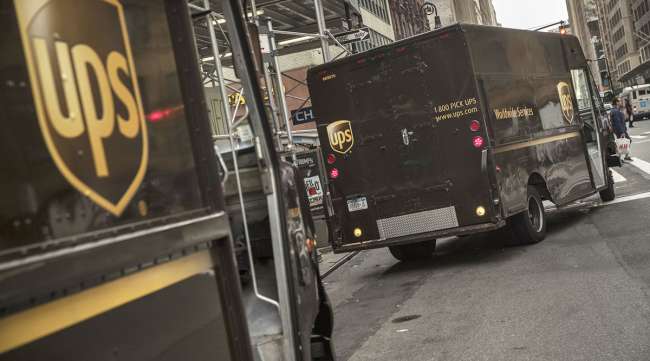UPS Signs Biggest Renewable Gas Deal With Clean Energy Fuels

UPS Inc. has agreed to buy the equivalent of 170 million gallons of renewable natural gas from Clean Energy Fuels Corp. over the next seven years in what the company described as the biggest-ever deal involving the alternative fuel.
The contract, worth about $95 million based on current natural gas prices, runs through 2025, according to UPS. The parcel deliver company said renewable natural gas ultimately will make up 40% of its total fuel purchases for ground transportation.
Shares of Clean Energy Fuels surged as much as 24% in pre-market trading. The Newport Beach, Calif.-based company, which initially was backed by energy magnate T. Boone Pickens in the early 2000s, harvests methane gas from landfills, keeping the greenhouse gas from reaching the atmosphere and contributing to global warming.
UPS Inc. is No. 1 on the Transport Topics Top 100 list of the largest for-hire carriers in North America.
“Instead of wasting it, we’re going to use it in trucks,” said Mike Casteel, director of fleet procurement for UPS. “We’re hoping to stimulate more production, and we eventually want for the majority of our natural gas to be renewable natural gas.”
UPS has been experimenting with alternative fuels as it deals with surging deliveries from the boom in e-commerce. About 12% of its 123,000-vehicle fleet now runs on natural gas, ethanol or electricity, according to the company, which also uses fuel cell vehicles, electric tractors and e-bikes.
The biggest group of those alternative fuel trucks — more than 6,000 vehicles — are powered by natural gas, making a switch to renewable gas one of the easiest ways for UPS to cut emissions. “The only obstacle,” Casteel said, “is that there isn’t a lot of it available.”
Landfill gas-burning UPS trucks will operate in 18 U.S. cities including Atlanta; Phoenix; Fort Worth, Texas; Omaha, Neb.; New Orleans, Salt Lake City and Kansas City, Mo.
Until recently, renewable gas largely had been used by utilities to supply customers and burn at power plants. But in 2017, a tax credit spurred companies to supply transport firms as well.



